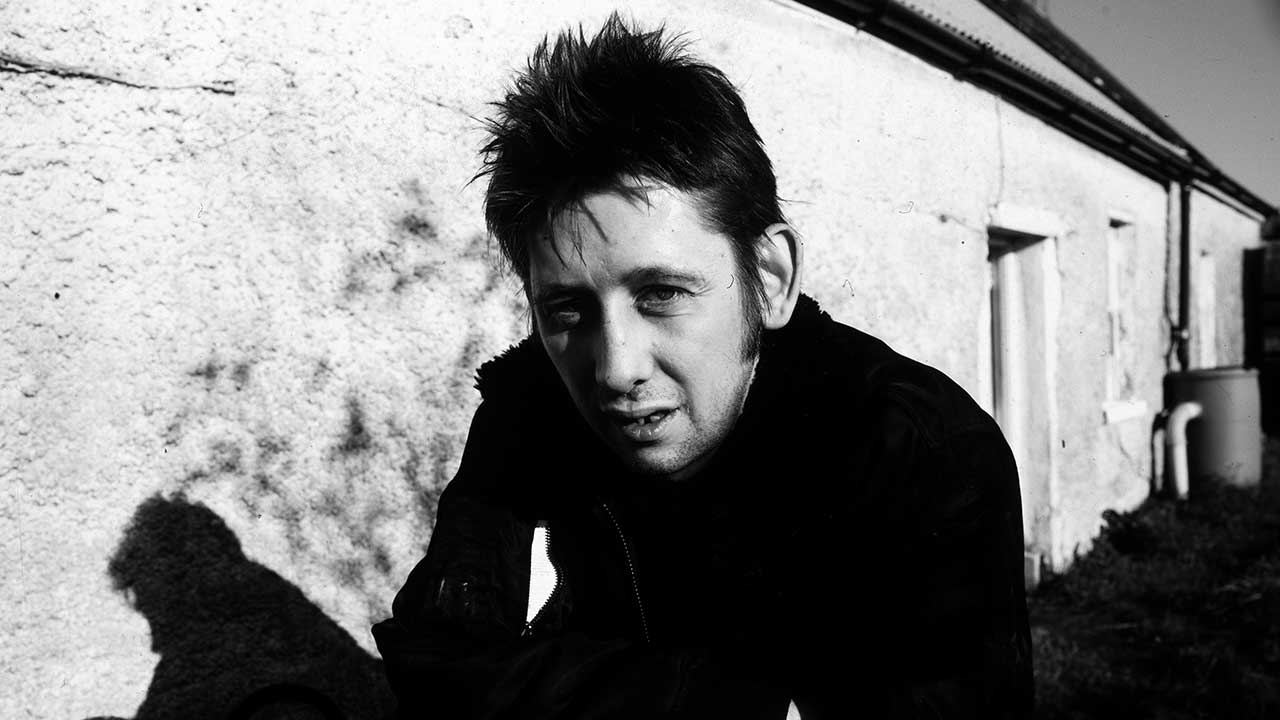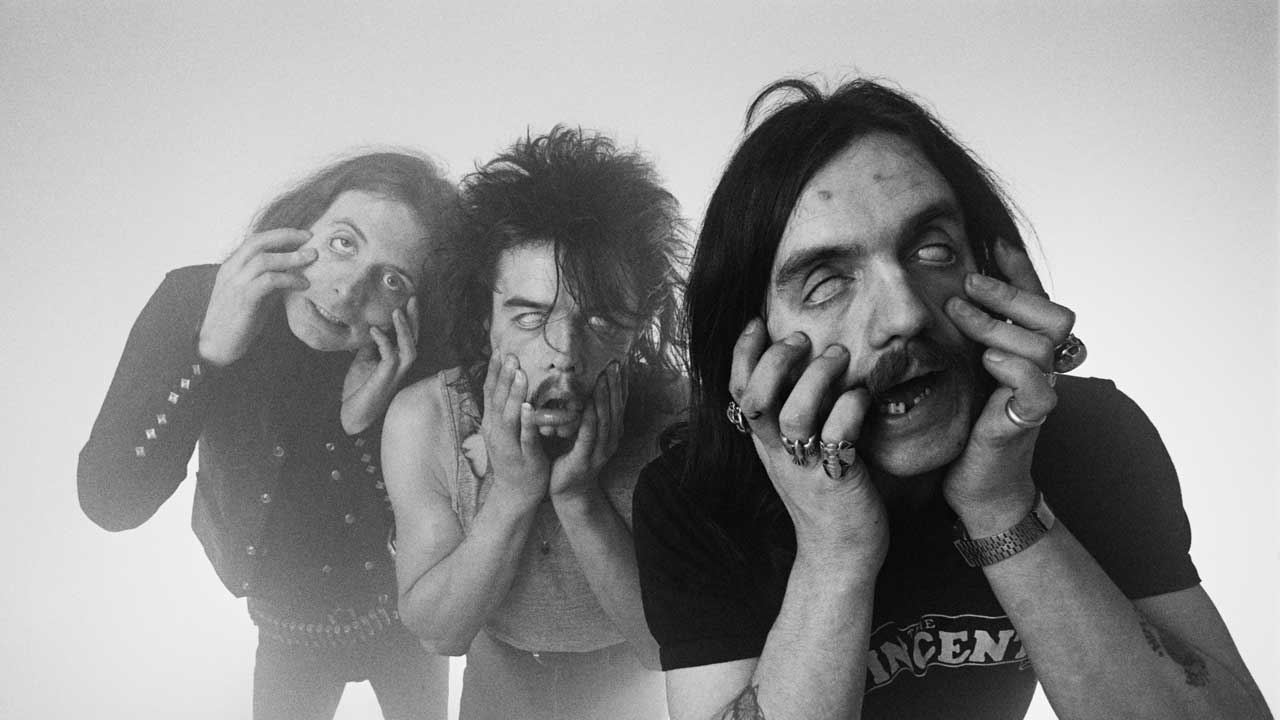Pogues singer Shane MacGowan has died aged 65
Shane MacGowan, bandleader of iconic punk group The Pogues, has died aged 65, his wife confirms

Select the newsletters you’d like to receive. Then, add your email to sign up.
You are now subscribed
Your newsletter sign-up was successful
Want to add more newsletters?

Every Friday
Louder
Louder’s weekly newsletter is jam-packed with the team’s personal highlights from the last seven days, including features, breaking news, reviews and tons of juicy exclusives from the world of alternative music.

Every Friday
Classic Rock
The Classic Rock newsletter is an essential read for the discerning rock fan. Every week we bring you the news, reviews and the very best features and interviews from our extensive archive. Written by rock fans for rock fans.

Every Friday
Metal Hammer
For the last four decades Metal Hammer has been the world’s greatest metal magazine. Created by metalheads for metalheads, ‘Hammer takes you behind the scenes, closer to the action, and nearer to the bands that you love the most.

Every Friday
Prog
The Prog newsletter brings you the very best of Prog Magazine and our website, every Friday. We'll deliver you the very latest news from the Prog universe, informative features and archive material from Prog’s impressive vault.
Shane MacGowan, singer of iconic punk group The Pogues, has died aged 65. His wife, Victoria Mary Clarke, confirmed the news via a post on her Instagram page.
"I don’t know how to say this so I am just going to say it," she wrote in a statement. "Shane who will always be the light that I hold before me and the measure of my dreams and the love of my life and the most beautiful soul and beautiful angel and the sun and the moon and the start and end of everything that I hold dear has gone to be with Jesus and Mary and his beautiful mother Therese.
"I am blessed beyond words to have met him and to have loved him and to have been so endlessly and unconditionally loved by him and to have had so many years of life and love and joy and fun and laughter and so many adventures. There’s no way to describe the loss that I am feeling and the longing for just one more of his smiles that lit up my world. Thank you thank you thank you thank you for your presence in this world you made it so very bright and you gave so much joy to so many people with your heart and soul and your music. You will live in my heart forever.
"Rave on in the garden all wet with rain that you loved so much. You meant the world to me."
A post shared by Victoria Mary Clarke Angels (@victoriamaryclarke)
A photo posted by on
MacGowan had been admitted to hospital in December 2022 with viral encephalitis, where he remained, battling the condition, for much of 2023. He was discharged from hospital on 22nd November this year.
Best known for his beloved and omnipresent 1987 Christmas single The Fairytale Of New York – recorded with Kirsty MacColl and allegedly the result of a bet from Elvis Costello that wagered MacGowan would never be able to write a Christmas hit, a bet Costello roundly lost, considering it is the most-played Christmas song of the 21st century in the UK, where it has now racked up north of 2.4 million combined sales – there was far more to MacGowan's career with the Pogues than his festive breakout single.
Squatting in Kings Cross, the Pogues began their wildly popular live career in 1982 by playing tiny venues around central London. By the end of the same decade, they were headlining Reading Festival in an utterly joyous albeit ramshackle Saturday night performance – the perfectly analogous career summit.
The accelerated growth of accomplished musicianship and songwriting in that same brief period is indicative of a pure talent that put Irish folk rock back into the charts. But the wheels started coming off when MacGowan was dismissed by the band in 1991 while on tour in Japan for unprofessionalism, stemming from his unquenchable thirst.
The latest news, features and interviews direct to your inbox, from the global home of alternative music.
The band’s 1984 debut featured seven MacGowan compositions and six reworkings of traditional folk tracks. The fertile and diverse post-punk era of the early to mid '80s was the perfect seeding round for The Pogues but the unlikely if not surreal re-introduction of Irish folk was still hugely incongruous during the mid '80s. The same month that Red Roses for Me was released and the band were clattering themselves over the head with tin trays around London venues, the charts were a playground for Wham, Culture Club, Bronski Beat and Spandau Ballet. The Pogues were an aberration.
But with instant classic stone-cold drinking anthems like Boys from the County Hell, Streams of Whiskey and Transmetropolitan – the latter being the most uncompromising scene-setting debut album opener since Holidays In The Sun – the rough edges of the set were only diluted by the even rougher edges of the band members themselves.
Following their debut, MacGowan went on to record another four albums with the Pogues: 1985's Rum Sodomy & The Lash, 1988's If I Should Fall From Grace With God, 1989's Peace And Love and 1990's Hell's Ditch.
It was clear from the very outset that The Pogues had serious intentions with 1988's If I Should Fall From Grace With God – yes, home to that aforementioned single. America was the open goal and even the iconic intrepid frontiers-destined cover photo suggested they were a band on the move.
Noted U2 and Big Country producer Steve Lillywhite was tasked with helming an enormous cast, with the band’s line-up expanded to an eight-piece. Bassist Cait O’Riordan was replaced by Darryl Hunt. Guitarist Phillip Chevron became a permanent member. Folk rock elder statesmen and ex-Steeleye Span multi-instrumentalist Terry Woods was recruited on cittern (et al) for a fuller, richer orchestration. The album’s lush string arrangements were handled by Irish composer Fiachra Trench, the late, great Kirsty McColl duetted with MacGowan on Fairytale Of New York and a whole host of session musicians contributed. Inevitably, ...Grace with God was The Pogues’ greatest commercial success and their most critically acclaimed album in the States.
If the subsequent Peace and Love was an ode to London, If I Should Fall from Grace with God was a love letter to New York. NYC is namechecked several times in both Fairytale of New York (titled after a novel of the same name by American-Irish novelist JP Donleavy) and Philip Chevron’s Thousands Are Sailing, an enormously popular live track about the emigration of Irish to America “to break the chains of poverty” that was played at his funeral.
But there’s so more than just sepia-tinted overtures to The Land Of The Free. The riotous Spanish-flavoured Fiesta, the middle-Eastern-tinged Turkish Song of The Damned, the folkish Medley, the harrowing Streets of Sorrow and glorious The Broad Majestic Shannon all heralded a significant, and magnificent, step forward.
MacGowan was awarded the Ivor Novello songwriting inspiration award in 2018, marking his five albums with The Pogues and various solo albums, including The Snake in 1994, and collaborations with artists such as Nick Cave (Louis Armstrong cover What A Wonderful World in 1992) and Sinead O'Connor (Haunted, 1995).
As with many artists and their super-hit singles, MacGowan's relationship with Fairytale was complicated. In an interview with The Times in 2022, MacGowan stated that "everything was exciting" for The Pogues in their early years together – "It changed our lives" – but that things changed after the much-loved single took on a life of its own as a monster hit.
“Once Fairytale got big it was really boring and you get real sick of it," the singer says. "You’re walking out on stage and they’re applauding like mad before you’ve done anything, yeah? It gets frightening. We did loads of bad gigs, most of them in the States.”
Briony is the Editor in Chief of Louder and is in charge of sorting out who and what you see covered on the site. She started working with Metal Hammer, Classic Rock and Prog magazines back in 2015 and has been writing about music and entertainment in many guises since 2009. Her favourite-ever interviewee is either Billy Corgan or Kim Deal. She is a big fan of cats, Husker Du and pizza.

